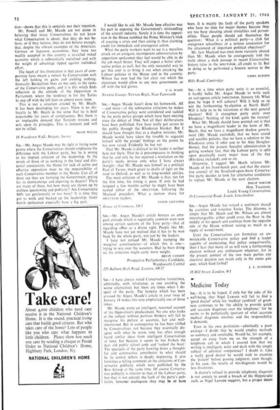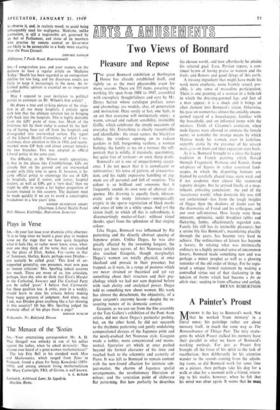Medicine Today
SIR,—II is to be hoped, if only for the sake of his . well-being, that Nigel Lawson will fail to find a 'good doctor' while his 'medical yardstick' of good- ness continues to be 'the ability to provide quick and accurate diagnoses over the telephone,' for he seems to be pathetically ignorant of what accurate medical diagnosis involves and the responsibility it demands.
Even in his own profession—admittedly a poor analogy—I doubt that he would employ methods so summary and unreliable. Would he, for example, accept an essay from me on the strength of a telephone call in which I assured him that my writing is intelligent, witty and dealt with the simple subject of editorial competence? I doubt it. Like a really good doctor he would wish to examine. the 'patient' before passing judgment, even though, in his case, the results of mis-diagnosis would be less disastrous.
A doctor's refusal to provide telephonic diagnosis is not anxiety to avoid a breach of the Hippocratic oath, as Nigel Lawson suggests, but a proper desire
to observe it, and, in realistic mood, to avoid being subsequently sued for negligence. Medicine, unlike journalism, is still a responsible art, governed by an Act of Parliament, and those of its members who practise by remote control or hit-or-miss are likely to be answerable to a body more exacting than the Press Council.
EDWARD SAMSON.



































 Previous page
Previous page